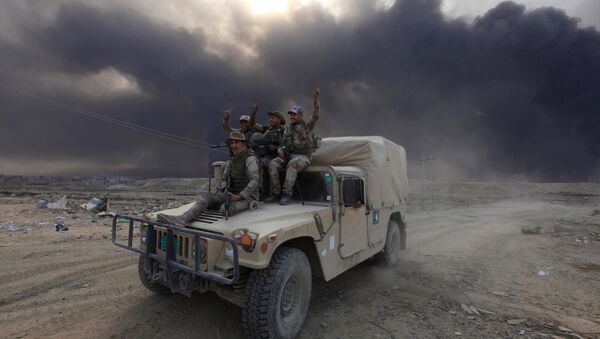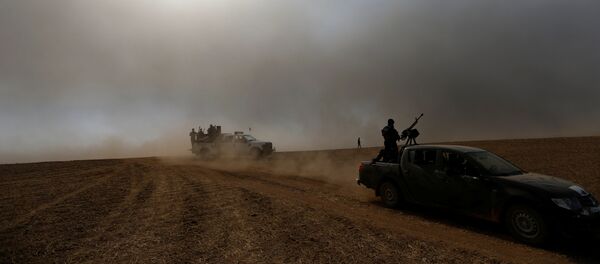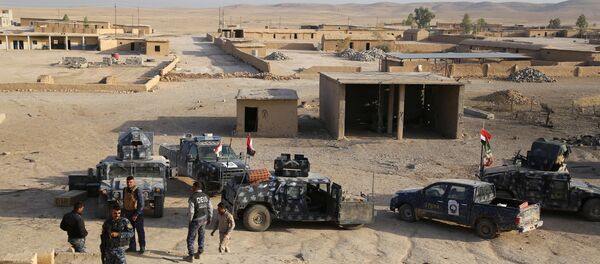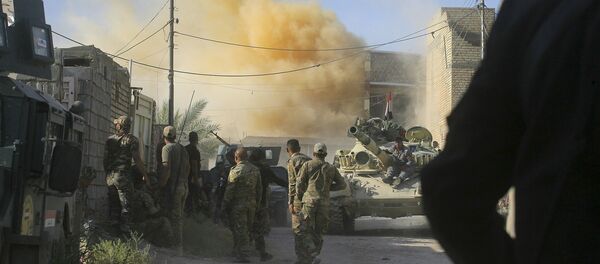The offensive kicked off on Monday but now there are clear signs that the coalition is going to face serious challenges.
Even before the operation began it was clear that the political and diplomatic challenges facing the anti-Daesh coalition have risen to dangerous levels.
"These challenges may ultimately prove more formidable than the street fighting within the city itself," the author underscored.
First of all, the battle for Mosul risks becoming a humanitarian catastrophe for civilians who are expected to flee as fighting escalates.
It seems that the Iraqi authorities are trying to mitigate the humanitarian crisis and calling on Mosul residents to seek for shelter inside the city, instead of fleeing. In addition, Daesh terrorists are preventing people from leaving the city. The government also did not explain how it is going to provide those citizens with food, water and medical help throughout the operation.
But the main problem is that the US is basing its hopes to end the war in Iraq on the "unstable plan and volatile coalition," Davis pointed out. Currently, Washington is relying on a coalition of mixed forces having opposite interests.
Furthermore, Turkey, a NATO member, has occupied territory in two neighboring countries and is threatening to ruin the anti-Daesh coalition while Iraqi Prime Minister Haider al-Abadi is threatening a war on Turkey.
The situation is the "result of a stubborn Washington reliance on a foreign policy that seeks to feature military power to compel others to our will and a never-ending attempt to find quick answers to complex and multi-dimensional problems," the author wrote.
"Predictably, such a method of conducting foreign policy succeeds only in the continual degradation of the problems we seek to solve and the diminution of American national security," he added.
According to an article in the Turkish newspaper Milli Gazete, the Mosul operation reflects a crisis in the entire Middle East region, and this is why Turkey is actively engaged in the situation.
"This crisis is not only about the division of Mosul between the key players. […] The Mosul crisis reveals that the US is unable to redraw the Middle East map alone. Washington is now looking for partners in the region," the article read.
"Mosul is a big trap for the entire Arab world. The crisis risks provoking large-scale conflicts across the region," it concluded.





